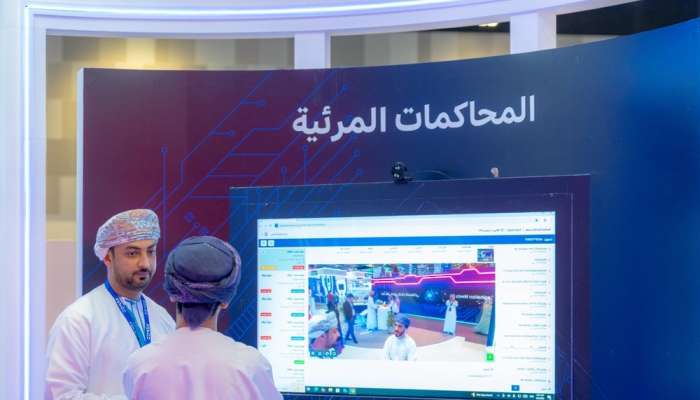
Muscat: The Sultanate of Oman is achieving remarkable advancements in its judicial and legislative framework, realising the visionary leadership of His Majesty Sultan Haitham bin Tarik in establishing a modern state governed by institutional integrity and legal certainty.
These developments fundamentally support Oman Vision 2040’s commitment to justice and the rule of law.
The Omani judiciary is systematically building a sophisticated justice system characterised by operational efficiency, accelerated proceedings, and streamlined processes, effectively responding to national development goals and global economic dynamics.
The inauguration of the Investment and Commerce Court - the nation’s first specialised commercial judiciary - marks a strategic milestone in Oman’s judicial evolution. Commencing operations in the 2025-2026 judicial year, this institution demonstrates Oman’s unwavering commitment to creating a progressive legal framework that prioritises legislative excellence, judicial oversight, and procedural efficiency.
This specialised court system guarantees integrity while simplifying litigation access and consolidating regulatory supervision.
The establishment of dedicated commercial judiciary represents a crucial investor safeguard, complementing Oman’s comprehensive framework of investment-friendly regulations and business facilitation measures.
By ensuring that commercial disputes are adjudicated by specialised judges, it enhances judicial precision and strengthens confidence in Oman’s legal system.
This judicial specialisation provides assurance to investors and litigants through predictable judicial performance, protects stakeholder rights, minimises derivative disputes, and ultimately contributes to market stability and business environment enhancement.
Commercial and investment cases demand distinct expertise due to their complex nature involving multinational entities, governmental bodies, substantial financial interests, and intricate contractual arrangements.
The specialised court ensures profound understanding and timely resolution of such cases, preventing irreparable commercial damage from prolonged litigation.
The Supreme Judiciary Council’s digital transformation initiatives have significantly elevated operational efficiency and accessibility.
The “Qadhaa” electronic portal offers user-friendly judicial services, enabling seamless case registration, procedure tracking, and hearing management for individuals and legal professionals. Integrated video notary services eliminate physical attendance requirements through secure identity verification, while system interoperability with key government entities streamlines judgment enforcement.
Recent enhancements include electronic payment facilities for judicial dues with automated attachment order processing, and the launch of a comprehensive digital judicial library connected to global legal resources.
This knowledge platform features intelligent search capabilities, continuously updated case law databases, and integration with international legal libraries, serving judges, lawyers, and researchers through advanced analytical tools.
Current developments focus on creating an intelligent judicial infrastructure incorporating remote hearings in secure digital environments.
Artificial intelligence applications assist judges in documentation, case prediction, and judgment drafting, while reducing litigation burdens through virtual representation capabilities.
Emerging technologies including blockchain for digital evidence authentication, virtual reality court proceedings, and specialised legal AI models represent the next frontier in judicial innovation, all directed toward achieving exemplary justice.
The Supreme Judiciary Council’s implementation of its 2024-2040 Strategic Plan focuses on establishing a globally respected judicial system through legislative modernization, expanded specialized judiciary, and alternative dispute resolution mechanisms.
Ongoing infrastructure development includes new court complexes in A’Seeb, Musandam, Sumail, and Adam, alongside modernization of existing facilities like the Salalah Court Complex.
Priority remains on specialised judicial training and capacity building, both domestically and internationally, to ensure exceptional performance standards.
These comprehensive reforms demonstrate Oman’s commitment to a transparent, efficient judicial system that strengthens business confidence and upholds the highest values of justice and integrity. -ONA